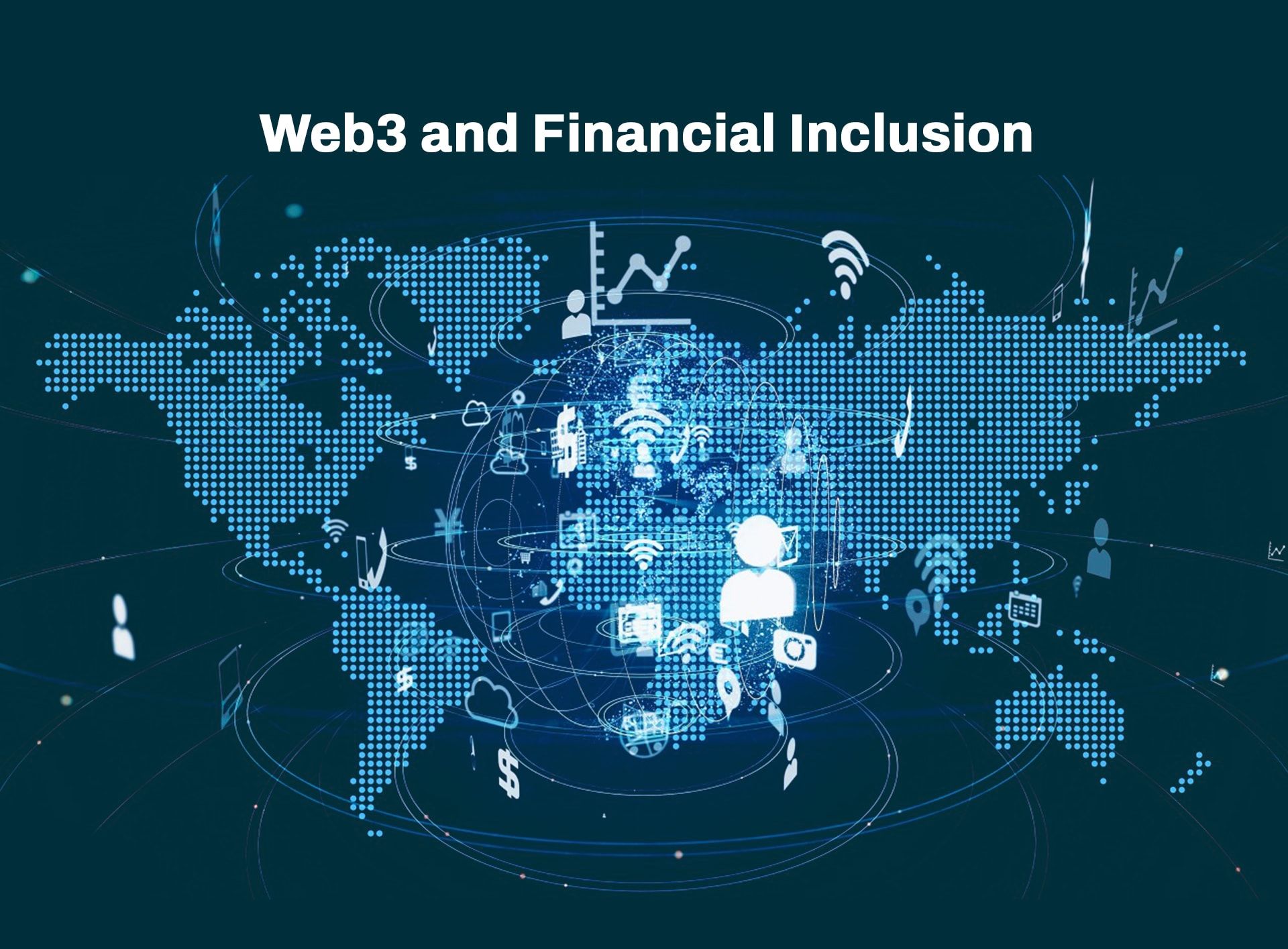Table of Contents:
- What Are Web3 Jobs?
- Why Get Paid in Crypto?
- How to Start a Career in Web3
- How Do People Get Paid in Crypto?
- How to Receive Payments in Crypto
- Tools and Platforms for Freelancers to Get Paid in Crypto
- Tips for Managing Your Crypto Payments
- Challenges of Getting Paid in Crypto
- To Recap
- FAQs
Cryptocurrency is no longer just for investors and traders; it is also becoming a popular payment method for professionals in the Web3 space.
Beyond the innovations around blockchain technology, decentralised finance (DeFi), and NFTs, there are developers, marketers, writers, designers, and other professionals keeping things running smoothly.
If you're exploring Web3 jobs, one question might be at the top of your mind: How do I get paid in crypto?
This article is a guide for freelancers, job seekers, and anyone interested in working in Web3 and receiving payments in cryptocurrency.
If you need a breakdown of the basics, an explanation of the step-by-step process, and practical tips to get paid in crypto, keep reading!
What Are Web3 Jobs?
Web3 jobs refer to work opportunities in the decentralised internet, powered by blockchain technology and cryptocurrencies.
These jobs cover a wide range of roles, from technical positions like blockchain developers, smart contract engineers, and data scientists to non-technical roles like community managers, content writers, marketers, and product designers.
Unlike traditional jobs, many Web3 roles are remote-first, project-based, and often pay in cryptocurrency—making them a flexible option for people worldwide.
According to a report by Crypto Jobs List, the demand for Web3 talent has grown by over 395% since 2020, driven by the increasing adoption of blockchain across industries like finance, gaming, and supply chain management.
What makes Web3 jobs unique is that they focus on collaboration, innovation, and decentralisation.
The flexibility of crypto payments also adds to its appeal, as more people are choosing to receive payments in cryptocurrencies instead of traditional currencies.
Why Get Paid in Crypto?
1. Faster Payments Across Borders:
Traditional payment systems can take hours or even days to process due to bank delays and intermediary fees.
In contrast, cryptocurrencies allow instant or near-instant payments worldwide, regardless of where you live or work.
This is especially helpful for freelancers and remote workers in countries with limited access to traditional banking services.
2. Lower Transaction Fees:
Banks and payment processors often charge significant fees for transactions, especially if they are international transactions that require currency conversions.
However, when you get paid in crypto, transaction fees are usually much lower, sometimes as little as a few cents, depending on the blockchain network used.
3. Access to a Global Market:
Cryptocurrencies are borderless. They aren’t restricted by country or region.
This makes it easier for freelancers and Web3 professionals to connect with clients globally and receive payments without the hassle of setting up international accounts or dealing with exchange rates.
For instance, a freelancer in Nigeria can work with a company in Germany and get paid directly in crypto without currency conversion hurdles.
4. Opportunity for Value Growth:
Unlike traditional fiat currency, some cryptocurrencies can increase in value over time. Take a look at Bitcoin!
While prices can also be volatile, holding payments in crypto offers the potential for additional gains if the market grows.
5. Privacy and Security:
Cryptocurrency payments offer a higher level of privacy and security compared to traditional methods.
With crypto, there’s no need to share sensitive banking information, reducing the risk of fraud or identity theft.
Payments are secured through blockchain technology, ensuring transparency and tamper-proof records.
How to Start a Career in Web3
1. Learn the Basics:
Begin by understanding the foundational concepts of Web3, such as blockchain technology, cryptocurrencies, decentralisation, and smart contracts.
Platforms like Coursera, YouTube, or Blockchain Council offer beginner-friendly resources.
2. Choose a Path and Develop Relevant Skills:
Decide whether you want to pursue a technical or non-technical role.
If you’re tech-savvy, you could learn programming languages like Solidity (for smart contracts) or JavaScript.
Non-technical roles like community management, content writing, or marketing are equally valuable.
Platforms like Codecademy and freeCodeCamp are excellent for technical skills, while LinkedIn Learning can help you polish non-technical abilities.
You could also get professional training to develop the must-have soft skills required to work in web3.
3. Network in the Web3 Community:
Web3 thrives on communities. Join forums like Reddit’s r/cryptocurrency or Discord servers focused on blockchain projects.
Twitter (or X) is also a hub for Web3 enthusiasts; follow hashtags like #Web3Jobs or #CryptoCareers to stay updated.
Also, attend virtual or in-person events or Web3 conferences to connect with industry professionals and potential employers.
4. Showcase Your Work:
Build a portfolio to demonstrate your skills.
If you’re a developer, create and share your projects on platforms like GitHub.
Writers can contribute articles to Web3 blogs or platforms like Medium.
Remember, employers in Web3 value practical experience more than formal qualifications.
5. Apply for Web3 Roles:
Once you’re confident in your skills, start applying for Web3 jobs.
Websites like CryptoJobsList and Web3.career list hundreds of opportunities, from internships to full-time positions.
You can also find freelance gigs where you get paid in crypto for your work.
You can find web3 platforms for writers here.
6. Stay Updated and Keep Learning:
The Web3 space evolves rapidly, with new technologies and trends emerging daily.
Stay ahead by following blogs like the Obiex blog, podcasts, and news outlets.
Enrol in advanced courses to refine your knowledge. Continuous learning will help you remain competitive in this ever-changing industry.
How Do People Get Paid in Crypto?
Getting paid in crypto might sound complicated at first, but it’s actually a straightforward process.
People who work in Web3 or other industries that accept crypto payments typically follow a few simple steps to receive their earnings securely.
Employers or clients send cryptocurrency directly to the worker’s crypto wallet.
Payments are often made in popular cryptocurrencies like Bitcoin, Ethereum, or USDT.
How to Receive Payments in Crypto
Below are the detailed steps on how to get paid in crypto:
1. Set Up a Wallet:
The first thing you need is a crypto wallet.
Some popular wallets include MetaMask, Trust Wallet, and Ledger.
Choose one that suits your needs—MetaMask is great for beginners, while Ledger is a secure option for long-term storage.
2. Share Your Wallet Address:
Your wallet generates a unique address—a long string of letters and numbers—that you can share with your employer or client.
This is more like your "crypto account number."
Always double-check it before sharing to avoid sending payments to the wrong address.
3. Agree on the Cryptocurrency:
Discuss with your employer or client which cryptocurrency will be used for payment.
The most common options are Ethereum and stablecoins like USDT.
4. Receive the Payment:
Once your wallet address is shared and the cryptocurrency is agreed upon, your employer or client will send the payment.
Transactions typically take a few minutes, although it may vary depending on the cryptocurrency and network traffic.
5. Convert to Local Currency (Optional):
If you want to use your crypto earnings for everyday expenses, you can convert them to your local currency using the Obiex app.
This gives you easier access to your money for shopping, bills, or other needs.
Tools and Platforms for Freelancers to Get Paid in Crypto
1. Coinbase Commerce:
Coinbase Commerce is a user-friendly platform that enables freelancers to accept payments in Bitcoin, Ethereum, and other cryptocurrencies.
It works like a digital payment gateway, allowing clients to pay using their preferred cryptocurrency.
You can integrate it into your website or use a simple payment link.
With Coinbase Commerce, you can track transactions easily, and the platform provides the option to convert your crypto into fiat currency for flexibility.
2. Bitwage:
Bitwage is a platform specifically designed for freelancers and remote workers who want to receive their salaries in crypto.
It allows you to create an account, generate an invoice, and get paid in popular cryptocurrencies.
Bitwage also supports splitting payments between crypto and fiat, making it an excellent choice for freelancers who want financial flexibility.
3. Request Network:
Request Network simplifies invoicing for freelancers working in Web3.
It allows you to create professional invoices and request payments in cryptocurrency.
With its blockchain-based system, all payment records are transparent and secure.
Request Network supports multiple cryptocurrencies and can be integrated into various financial tools, making it ideal for managing your freelance income.
4. Payoneer + Binance Pay:
Payoneer’s partnership with Binance Pay enables freelancers to receive crypto payments directly to their Payoneer accounts.
Binance Pay acts as the bridge, offering an easy and secure way for clients to pay in crypto while freelancers receive the equivalent in fiat through Payoneer.
This is especially useful for those who want the convenience of fiat with the flexibility of accepting crypto.
5. NOWPayments:
NOWPayments is a versatile platform that supports over 150 cryptocurrencies, making it one of the most comprehensive payment gateways for freelancers.
It provides plugins and APIs to integrate into websites and e-commerce platforms.
The tool also offers features like auto coin conversion, ensuring that you always receive payments in your preferred currency.
6. Crypto.com Pay:
Crypto.com Pay is another reliable platform for freelancers looking to accept crypto payments.
It supports popular cryptocurrencies and offers cash-back rewards to users.
With its low transaction fees and easy integration, Crypto.com Pay is ideal for freelancers who value cost-efficiency.
Tips for Managing Your Crypto Payments
1. Use a Secure Wallet:
When you’re paid in crypto, your funds will be stored in a wallet. It’s essential to pick a wallet you trust.
Make sure to back up your private keys and store them in a secure place. Without them, you won't be able to access your crypto.
2. Choose the Right Cryptocurrency:
As Web3 payments often come in various cryptocurrencies, make sure you understand which ones you’re receiving.
Bitcoin (BTC) and Ethereum (ETH) are commonly used, but you might also get paid in stablecoins like USDC, which are tied to the value of the US dollar.
This can help avoid the volatility that comes with other cryptos.
3. Convert When Needed:
Sometimes, you’ll need to convert your crypto payments into traditional money (fiat) for spending.
Use trusted exchanges like Obiex for conversions.
They make it simple to swap your crypto for cash and send it to your bank account.
Just be aware of any fees and conversion rates.
4. Track Your Income and Taxes:
As crypto payments can be tricky when it comes to tax reporting, consider using tools like CoinTracker or Koinly. This applies to those who are in countries with a functional taxation system.
These platforms help you track your earnings and calculate your taxes.
Keeping track of your crypto payments ensures you’re compliant with tax regulations.
5. Know the Value of Your Crypto:
Cryptocurrencies can change in value very quickly.
It’s a good idea to stay up-to-date with market trends, so you can decide the best time to convert or hold onto your crypto.
Websites like CoinMarketCap can help you track live prices.
6. Ensure Payment Clarity:
Before accepting a crypto payment, clarify the exact amount and cryptocurrency type with your employer or client.
This will avoid confusion and ensure you get paid the correct amount.
Challenges of Getting Paid in Crypto
1. Volatility:
Cryptocurrency prices can change rapidly.
This means that the amount of money you’re paid in crypto can lose value quickly before you have a chance to convert it into local currency.
This creates uncertainty for workers who are paid in crypto, as the value of their payments can vary significantly.
2. Regulation:
The regulatory environment for cryptocurrency is constantly changing.
Some countries have strict laws about using or exchanging cryptocurrency, which can make it harder for workers to get paid in crypto.
In some regions, crypto payments might not be legally recognised or may come with heavy taxes.
It’s important to know the local rules and regulations before accepting crypto payments.
3. Accessibility:
Not all platforms or employers offer cryptocurrency as a payment option, and not all cryptocurrencies are supported by every payment service.
For example, you may be paid in a lesser-known cryptocurrency that’s not supported by your wallet or exchange.
This limits your ability to convert or use the payment.
It's essential to ensure that both you and the employer are on the same page regarding the crypto payment method.
4. Transaction Fees:
Some cryptocurrencies, especially popular ones like Bitcoin and Ethereum, can come with high transaction fees, particularly during busy network periods.
These fees can eat into your payment, making it less than expected.
If you’re receiving small amounts of crypto, the transaction fees can sometimes be higher than the actual value of the payment.
5. Lack of Consumer Protections:
When you’re paid in crypto, there are fewer protections compared to traditional banking systems.
If a payment is lost or a transaction goes wrong, it can be difficult to get it reversed or refunded.
Unlike credit card payments, there is no central authority that can step in and resolve disputes, leaving the worker vulnerable in cases of fraud or mistakes.
6. Learning Curve:
Understanding how to get paid in crypto requires some technical knowledge.
You need to know how to set up a crypto wallet, securely store your private keys, and convert crypto into fiat currency.
For newcomers, this can be intimidating, and mistakes can be costly without the right education.
To Recap
- Web3 jobs involve roles in the decentralised internet, powered by blockchain technology and cryptocurrencies, with opportunities for both technical and non-technical positions.
- Getting paid in crypto offers benefits like faster payments, lower transaction fees, access to a global market, potential value growth, and enhanced privacy and security.
- To start a career in Web3, you need to learn the basics of blockchain, choose a role to specialise in, network within the community, build a portfolio, and stay updated with industry trends.
- Receiving payments in crypto requires setting up a crypto wallet, determining the cryptocurrency to be used in your payments, and sharing your wallet address with clients or employers.
- Tools and platforms like Coinbase Commerce, Bitwage, and NOWPayments help freelancers accept crypto payments with options for conversion and flexibility.
- Managing crypto payments involves using secure wallets, choosing the right cryptocurrency, converting when necessary, tracking income and taxes, and staying informed about crypto values.
- Challenges of getting paid in crypto include price volatility, regulatory hurdles, accessibility issues, transaction fees, and a lack of consumer protections compared to traditional banking systems.
FAQs
Q1. How do freelancers get paid in crypto?
Freelancers receive crypto payments via wallets after invoicing their clients.
Q2. How do people get paid in crypto?
Payments are sent directly to a wallet, often agreed upon in advance.
Q3. How do I get my money on crypto?
Withdraw to fiat using crypto exchanges or spend directly via crypto-friendly services.
Q4. How do you receive payments in crypto?
Set up a wallet, share your address, and confirm payment in your chosen cryptocurrency.
Q5. How can someone pay me in cryptocurrency?
They send funds from their wallet to yours using your wallet address.
Q6. Are Web3 jobs in demand?
Yes, Web3 jobs are in high demand, especially for developers and marketers.
Q7. What are jobs in Web3?
Roles like blockchain developer, NFT designer, and community manager.
Q8. Is it hard to get a job in Web3?
It requires specialised skills and networking, but opportunities are growing.
Q9. How to start a career in Web3?
Learn blockchain basics, develop relevant skills, and network actively.
Q10. What tools help freelancers get paid in crypto?
Platforms like Coinbase Commerce, Bitwage, and Request Network simplify crypto payments.
Disclaimer: This article was written to provide guidance and understanding. It is not an exhaustive article and should not be taken as financial advice. Obiex will not be held liable for your investment decisions.



